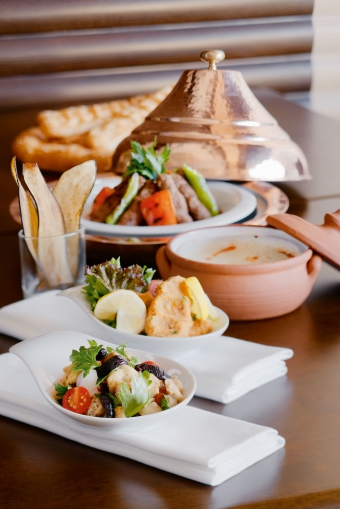Tips
Protein and fiber-based foods that are more digestive rather than meals and that provide a feeling of satiety for a longer period of time should be preferred. These foods are; (Chicken, fish and red meat) and eggs, vegetables and fruit are the products of whole grains (whole wheat bread etc.), dairy products (milk, yoghurt, cheese etc.). By choosing fibrous foods, the problem of constipation, one of the most common problems in Ramadan, can be avoided. White undranated pastries and sugary foods should be avoided as they cause rapid onset of insulin secretion and triggers constipation.
Healthy eating recommendations in Ramadan;
On the sahur, absolutely heavy foods should not be consumed. Make a quite rich breakfast; Both in terms of digestive health, and also to be able to remain full during the day.
Sufficient water should be consumed. Due to fasting for a long time and at high temperatures, the body is dehydrated. In this case, it disrupts the water-ion balance of the body. Degraded water-ion balance can cause a variety of discomforts, including fainting during fasting. So, from iftard to sahar, 2.5-3 liters of water should be consumed at regular intervals.
Sahurda, may cause more thirst during the day; Salty and spicy foods should be avoided.
Due to prolonged starvation, human metabolism is slowing down. To accelerate metabolism; Iftar and sahur should be continued at regular intervals between food consumption.
In short, the food should be consumed in a very slow manner, chewing abundantly. Metabolism slows digestion as it slows down. Therefore, chewing plenty, slow consumption should be helped the digestive system.
The consumption of heavy meals should be avoided. Beginning a meal with a warm soup will both relax the midi, and prevent excessive consumption of food.
Instead of a very heavy, mellow sweetness; It will be healthier to consume lighter, milky sweeties and the like.
To help digest the body; Nuts and almonds should be consumed in abundance. Especially the consumption between iftar and sahur is ideal.
For sahur and iftar; More healthy, less oily and less spicy food should be prepared menus.
Regular fruit consumption should be taken care of. To meet the vitamins that your body needs; Seasonal fruits, regular consumption is essential.








